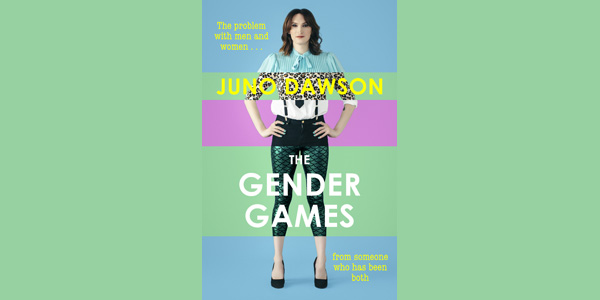This resource is great for:
Getting young people to think widely, and more inclusively, about gender.
Summary:
A series of activities encouraging young people to speak about their views on gender, and to question their own reading habits.
Download this resource:
Discussing Gender – PDF
Discussing Gender – Word doc
Introduction:
Marketing toys to either girls or boys is big business – but what about books? Do authors writing for youngsters consciously create stories with a gender in mind? We’ve seen the rise of the ‘strong girl’ in fiction, and books created for the allegedly elusive ‘boy readers’, but what is the reality?
These questions, alongside others, will form the basis of a Book Festival event – The Great Gender Debate – on Friday 18 August. The event will see a fascinating discussion between award-winning novelist of young adult fiction Kathryn Evans, American author of Two Boys Kissing David Levithan, and fantasy writer Jonathan Stroud.
We asked Sarah Broadley and Anita Gallo from the Society of Children’s Book Writers and Illustrators, who will be chairing The Great Gender Debate, to put together some discussion points to help get you talking about gender with your class.
Activities – Discussion Points
Part One: Identity
In small groups or pairs, start asking some basic questions about gender. What do you think makes you who you are – how you dress? How you feel? How other people feel about you? If someone was to describe you, what would they say? What do you think the first thing they would notice is? Do you think it is your internal or external characteristics that define who you are?
Part Two: Gender and Reading
Read the article ‘How Boys and Girls Differ as Readers’, published on the Scottish Book Trust website.
Boys and girls differ statistically in their reading skills… in a study examining the reading skills of 10-year-old children from 45 countries around the world, girls outperformed boys in 44 countries (sex differences were statistically significant in 40 countries). Therefore, sex differences in reading skill exist regardless of the education system, culture or writing system in which they are studied.
Do you agree with this statement? Why do you think this?
When Lauren Child was appointed Children’s Laureate earlier this year, she stated in her acceptance speech that boys don’t like reading books that have girls as the main characters – and that ‘makes it harder for girls to be equal.’
Do you agree with her statement? Can you think of examples that reinforce this point of view – or contradict it?
Think of your favourite books. Do you think the gender of the main character has influenced how much you liked this book? If the protagonist was a different gender, do you think you would still feel the same way about the book?
Part Three: Equality
Do you think society treats everyone equally? Can you think of examples in your own experience of people being treated differently because of gender, disability, sexual orientation or beliefs? Who do you think is responsible for stopping inequality? Is it the people in authority or is there individual responsibility too?
How do you think we can create a society that is genuinely inclusive? What role should the arts play in this? Do you think there are enough books covering these topics, or are there subjects you feel you would like to see covered in books that are not at the moment?
Further Information
To further your discussions on gender, why not come along to one of the following Book Festival events :
The Great Gender Debate on Friday 18 August is currently sold out – but do check back with the Box Office on 0845 373 5888 for returns.
